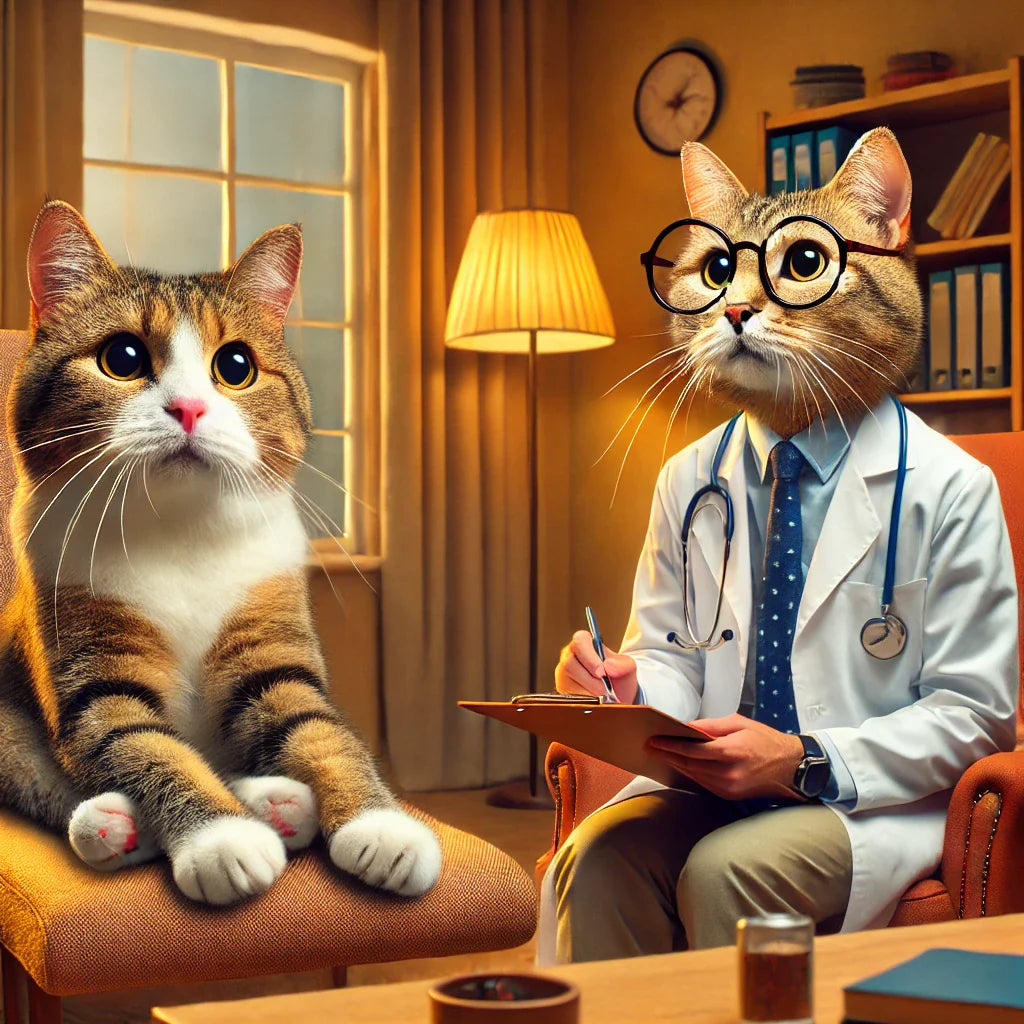
Recognizing Signs of Physical and Mental Health Concerns in Your Feline Friend
Share

As pet owners, our cats hold a special place in our hearts, and their well-being is of utmost importance. While our feline companions may not be able to verbally communicate when something is amiss, they often exhibit subtle signs that indicate potential physical or mental health concerns. Being attuned to these indicators can help us detect issues early on and ensure our cats receive the care and attention they need. Here are some key signs to look out for:
Physical Health Concerns:
- Changes in Eating Habits: A sudden increase or decrease in appetite could signal an underlying health issue. Pay attention to any changes in your cat's eating behavior, such as refusing food, eating less, or excessive hunger.
- Weight Fluctuations: Keep an eye on your cat's weight. Unexplained weight loss or gain might be indicative of health problems like hyperthyroidism, diabetes, or digestive issues.
- Lethargy or Inactivity: Cats are known for their love of lounging around, but a significant decrease in activity levels or persistent lethargy could be a sign of illness or pain.
- Changes in Litter Box Behavior: Monitor your cat's litter box habits. Straining to urinate, changes in litter box frequency, blood in urine or feces, or accidents outside the litter box may indicate urinary problems, constipation, or other issues.
- Dull Coat or Skin Changes: A healthy cat should have a shiny coat and healthy skin. Any signs of dry, flaky skin, excessive shedding, bald patches, or skin lesions warrant investigation.

Mental Health Concerns:
- Hiding or Withdrawal: Cats are masters of finding cozy hideouts, but prolonged hiding behavior or withdrawal from interactions could signal anxiety, stress, or even depression.
- Excessive Vocalization: While cats meow for various reasons, excessive vocalization, especially at odd times or in a distressed tone, can indicate physical discomfort, anxiety, or cognitive issues.
- Aggression or Destructive Behavior: Sudden aggression towards humans or other animals or destructive behavior like scratching furniture could be a response to stress, fear, or an underlying health concern.
- Changes in Sleeping Patterns: Cats are creatures of routine, so noticeable changes in sleep patterns, such as insomnia or excessive sleeping, could be an indication of physical discomfort or cognitive issues.
- Avoiding Interaction: Cats are generally aloof creatures, but a cat that starts avoiding interactions, including petting or playtime, may be experiencing emotional distress or discomfort.

When to Seek Veterinary Care:
If you observe any of these signs in your cat, it's essential to consult your veterinarian promptly. Regular veterinary check-ups can help detect health concerns early on, leading to better outcomes for your feline companion. Remember, as a pet owner, you play a crucial role in monitoring your cat's physical and mental well-being. By staying vigilant and attuned to changes in their behavior, you can ensure they lead a happy and healthy life by your side.
In conclusion, our cats may not be able to speak to us directly, but they communicate through their actions and behaviors. By understanding the signs of physical and mental health concerns in domestic cats, we can provide the care and support needed to keep our beloved feline friends healthy and happy for years to come.
